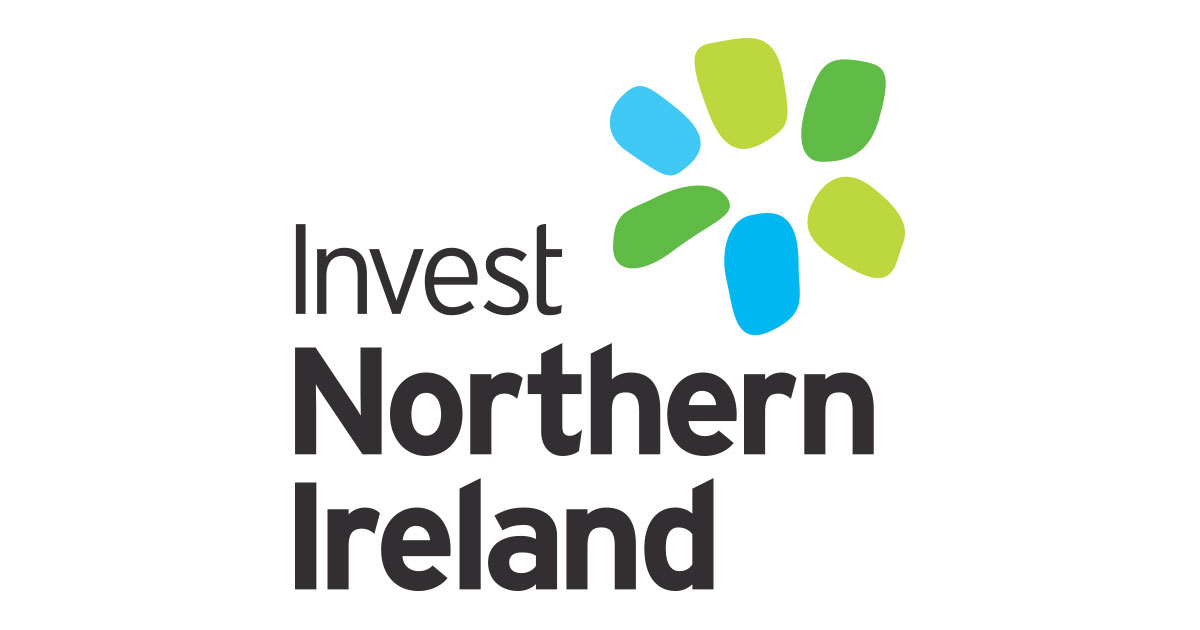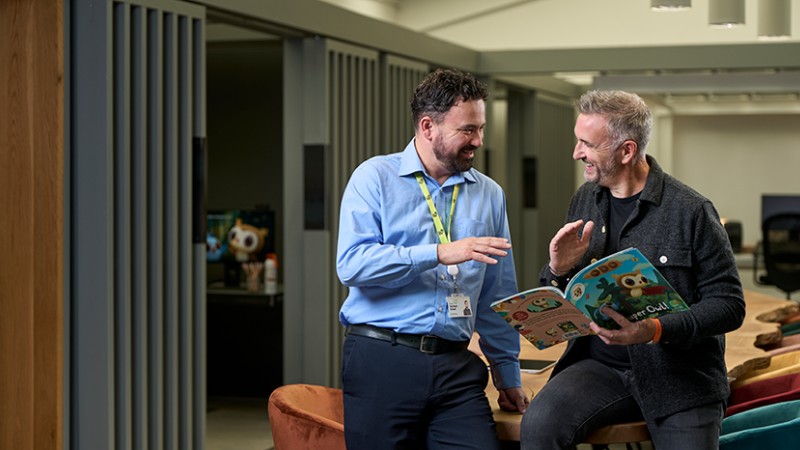Invest NI statement on the qualification of its 2020-21 Annual Report & Accounts

Invest Northern Ireland has published its 2020-21 Annual Report & Accounts today. The accounts have been qualified by the Comptroller and Auditor General at the Northern Ireland Audit Office in two areas – expenditure relating to NI Executive COVID emergency response schemes; and expenditure relating to a loan provided for the Glenmore Anaerobic Digestion Facility.
Responding to the qualifications Mel Chittock, Interim CEO, Invest NI said: “We acknowledge the decision of the Comptroller and Auditor General to qualify our accounts.
“The global pandemic was an unprecedented situation which required implementation and operation of emergency schemes outside of normal process. I am confident that all the necessary steps were taken to provide the best solutions to get much needed emergency funding to businesses. We complied fully with the instructions given to us and NIAO found no irregularities.
“I would like to address the qualification relating to a loan provided for the Glenmore Anaerobic Digestion Facility in more detail.
“Under the Sustainable Utilisation of Poultry Litter (SUPL) Scheme [1], Invest NI provided funding towards the build and operation of two Anaerobic Digestion plants.
“The aim was to help resolve a significant local environmental issue and to help Northern Ireland comply with EU nitrates targets, as well as provide economic benefits by supporting growth in the agri-food sector.
“It was always understood that the development of anaerobic digestion plants using innovative technologies was high risk. This risk was balanced against the environmental and economic benefits to the NI economy.
“The Glenmore facility encountered technical and operational difficulties and in 2020 the owner operator decided to refinance the business. As a result, Invest NI, and the main funder, will not receive a return on the initial investment made. However, the plant remains operational, is contributing to the objectives of the SUPL Scheme, and producing green energy for two NI manufacturing businesses.
“In late 2020 we asked our Internal Audit team to carry out a thorough review of our oversight of the investment in the Glenmore Anaerobic Digestion facility. While we had no involvement in the operation of the plant we wanted to understand if lessons could be learned from this high-risk investment.
“The review highlighted that there could have been improvements in our internal processes; that we could have taken more steps to better mitigate and manage the loan investment in this project.
“This included our communication to the Department of Finance, specifically of the increased risks around our investment when the plant encountered difficulties. The Department has subsequently concluded that some of the conditions it put in place around the loan were not met, and now views the loan as an irregular spend.
“As a result the Comptroller and Auditor General has a qualified opinion on the provision to write-off the debt and the interest income associated with this loan in our 2020-21 Accounts.
“We accept the findings of the Internal Audit Report, and the qualification of our accounts. I have given assurances to our Board, our sponsor Department and the Department of Finance that lessons have been learnt. We have tightened our processes and procedures, including a newly formed Invest NI Governance Council focussed on implementing best practice and improvements right across the organisation.
“Providing support for investment in innovative solutions is always risk-based. It is important that we continue to support businesses to take these risks, with the appropriate checks and balances in place, and deliver economic and societal benefits for all of Northern Ireland.”
Background on the qualification of expenditure relating to a loan provided by Invest NI for the Glenmore Anaerobic Digestion Facility
- In 2012 the ‘Going for Growth’ Agri-Food Strategy identified the potential for economic growth within food processing.
- To facilitate this growth, innovative solutions needed to be found to deal with the excess waste produced by the sector and meet EU Directives [2]
- Two plants were constructed under the SUPL scheme: the Ballymena Anaerobic Digestion Facility [3] and the Glenmore Anaerobic Digestion Facility [4]. The facilities were a risk-based approach to addressing an environmental challenge
- The Ballymena Anaerobic Digestion Facility was recently sold with a return of c£2.39m more than originally invested under the SUPL Scheme [5]
- The Glenmore Anaerobic Digestion Facility experienced difficulties reaching expected levels of operation or profitability, leading to a need to refinance the business. Based on the terms of the refinance, neither the public sector nor private investor will recoup any of initial loan investments in the project [6]
- This loss was provided for in Invest NI’s 2020-21 Accounts as £10.4 million of Expected Credit Losses and £0.4 million of interest income
- The Glenmore facility still plays an important role in meeting the economic and environmental objectives of the SUPL Scheme. It has processed over 42,000 tonnes of poultry litter and provides green energy to two large NI manufacturers
Background on the qualification of expenditure relating to NI Executive COVID emergency response schemes
- The NI Executive Small Business Grant Scheme (SBGS) was launched in March 2020 to provide one-off emergency grants to small businesses to help mitigate the potential threat of business closures
- The Department for the Economy (DfE) agreed a Memorandum of Understanding (MOU) with Invest NI and the Department of Finance Land and Property Services (LPS)
- Invest NI’s responsibility under the MOU was to “record the full estimated costs of the grant scheme on an accruals basis in 2019-20 budgets and accounts”
- This approach was based on legal advice received by DfE and was discussed with DoF and NIAO. This approach was used for three other emergency COVID-19 schemes [7] that followed in 2020-21
- The Department for the Economy (DfE) launched a further five further NI Executive emergency response schemes [8]
- Invest NI was instructed to deliver these five schemes by Ministerial Direction
- Due to the emergency nature of the schemes, and in order to facilitate the required speed of delivery, each of the five schemes relied on self-declarations made by applicants to confirm eligibility
- The risk of fraud associated with this approach was acknowledged and documented, and accepted only under the specific requirements of these schemes to deliver emergency funding
- DfE assumed responsibility for any post payment checks, and clawback provision was built into each scheme
Notes to Editors
[1] SUPL is a Department for the Economy and Department of Agriculture, Environment and Rural Affairs scheme, operated by Invest Northern Ireland.
[2] The EU Nitrates Directive and the EU Water Framework Directive required Northern Ireland to demonstrate to the European Commission that significant progress has been made in dealing with the issue of surplus poultry litter. Failure to convince the Commission of the poultry sector’s ability to manage the surplus could result in ‘phosphorus controls’ which could both prevent potential expansion of the sector, and place restrictions and additional financial/administrative burdens on the sector.
[3] Under the terms of the SUPL Scheme, Invest NI’s support for the £23.4m Ballymena Anaerobic Digestion Facility was a £7.2m commercial loan and £1.3m equity investment.
[4] Under the terms of the SUPL Scheme, Invest NI’s support for the £24.3m Glenmore Anaerobic Digestion Facility was a £9.3m commercial loan.
[5] Following the sale of the Ballymena Anaerobic Digestion Facility Invest NI received full repayment of its outstanding loans and accrued interest of c£10.4m. In addition, a further c£450k was received against Invest NI’s equity investment.
When compared to an initial loan and equity investment of £8.5m, this will result in a surplus over the initial investment amount of c£2.39m.
[6] Under the terms of the refinance of the Glenmore Anaerobic Digestion Facility, Invest NI will not receive any return on its investment. As a result, it has been required to write off the £9.3m loan plus interest. The private investor will also not receive a return on the initial investment.
[7] The three other NI Executive emergency COVID schemes were:
- Tourism & Retail Sectors Grant
- Large Tourism & Hospitality Business Support Scheme
- Wet Pubs Scheme
[8] The other five emergency COVID schemes were:
- Coronavirus Hardship Fund for Microbusinesses
- Covid Restrictions Business Support Scheme (CRBSS) Part A
- Covid Restrictions Business Support Scheme (CRBSS) Part B
- Newly Self-Employed Support Scheme (NSESS)
- Limited Company Directors Support Scheme (LCDSS)


